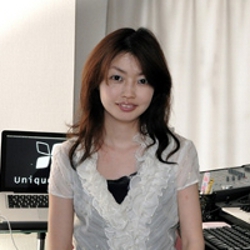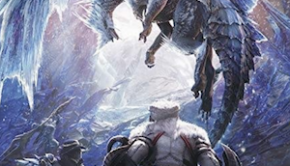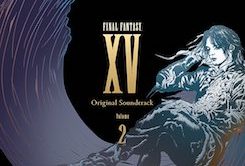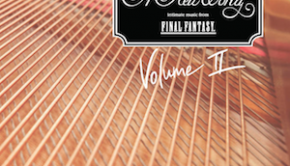Yoshino Aoki Profile
 |
Also Known As: 青木佳乃 (あおきよしの) |
| Date of Birth: August 19, 1971 (Kanagawa) |
|
| Residence: Tokyo |
|
| Game Works: Breath of Fire, Mega Man Battle Network & Star Force |
|
| Official Site: Company Site |
History
| Organisation | Type | Tenure | Role |
| Capcom | Game Developer | 1995 – 2006 | Composer |
| Unique Note | Music Production | 2009 – | Co-Founder, Composer, Vocals |
| GE-ON-DAN | Artist Collective | 2010 – 2011 | Member |
Biography
Yoshino Aoki is a video game composer and vocalist at Unique Note best known for her works on the Mega Man and Breath of Fire franchises. Born on August 19, 1971 in Kanagawa, Aoki listened to classical music and played the piano and flute from an early age. Around the same time, she received a synthesizer and started to create desktop music, learning the basics of composition and production. When she entered high school, she also learned how to sing by performing the works of the great operatics from Italy and Germany. While studying composition at university, she played the famous video game Final Fantasy IV and was so impressed by both the score and the scenario that she aspired to compose a role-playing game herself one day. After graduating, Aoki became employed as a composer at Capcom in 1995; following arrangement work for the Saturn version of Mega Man X3, she was soon given the opportunity to compose the RPG she desired.
Most of Aoki’s initial years at Capcom were dedicated to the Breath of Fire series. She joined the Breath of Fire III project midway in its development and composed approximately half the final score. Aoki maintained the upbeat jazz flavour that lead composer Akari Kaida had developed for the title and also channeled inspirations from classic RPGs. Nevertheless, she also developed her own musicality on the soundtrack with her rich, melodic approach. The final score was regarded as quite innovative for an RPG soundtrack. Following a role on Super Gem Fighter Mini Mix, Aoki returned as the main composer of Breath of Fire IV thereafter. She scored much of the soundtrack in an orchestral or acoustic flavour in order to represent the world of the protagonist Ryu. After careful research, she also developed an intense Asian fusion style to portray continent of the antagonist Fou-Lu. The artist was also selected as the vocalist for the themes songs of both Breath of Fire titles and Mega Man Battle & Chase.
In her subsequent years at Capcom, Aoki was responsible for a number of scores in the Mega Man series. She was initially responsible for the second, third, and sixth scores in the Battle Network subseries for the Game Boy Advance, otherwise composed by Kaida. On each score, Aoki carefully preserved the atmosphere of the series, while empathising with the prospective player to produce likeable compositions. She nevertheless challenged herself to offer musical contrasts and novelties on these titles — reflecting the best of her previous experiences on the third game and offering various hardware enhancements on the sixth game. Towards the end of her time at Capcom, Aoki scored another major project, the PlayStation 2’s Shadow of Rome. Influenced by movie scores such as Gladiator, she wrote largely in an epic orchestral style. After many years working with the Game Boy Advance, she felt technologically liberated on this project and implemented the music with Giga Studio.
Feeling she had become burdened by administrative responsibilities, Aoki decided to leave Capcom in order to be a freelance composer in 2006. While making the transition, she became the lead composer of the Mega Man Star Force trilogy for the DS. She composed each instalment in a way that represented the growth of its main character, offering a somewhat modest quality to the first instalment and a more heroic personality for subsequent titles. As a freelancer, Aoki also revisited RPG composition as a invited guest composer on Luminous Arc 2 and Suikoden Tierkreis. In the former, she contributed some particularly emotional orchestral compositions under the direction of Yasunori Mitsuda. In the latter, she focused on blending orchestral and ethnic elements to portray for the Porpos and Furious Roar. In other freelance works, Aoki created a diverse accompaniment to the browser game Daletto World, co-composed the garden simulator Shikitei, and produced a vocal theme for Half-Minute Hero.
In 2009, Aoki decided to join forces with fellow Capcom departee Tetsuya Shibata to form Unique Note, a company dedicated to producing music for video games and beyond. In her debut at the company, she composed around 200 pieces of music on a short deadline for the musical Rakuen with her composing partner; her previous experience with vocal music was particularly helpful, although the majority of the tracks requested were catchy pop songs. In other works for alternative media, she helped to create jingles for the radio channel All Night Nippon Mobile, produced background music for the PlayStation 3’s 3D photo viewer PlayMemories, and contributed tracks to the R-Mix plays Struldbrugg and Maoutensyou. Also continuing to be sought-after as a vocalist, Aoki sung theme songs for Walk It Out, Miracle Party, Ultra Miracle Party,, and PSP’s Fullmetal Alchemist, each demanding distinct approaches.
Mediated through her networking activities at GE-ON-DAN, Aoki has been invited to work on several collaborative productions in recent years. She contributed beautiful ending themes to the Guwange Arrange Album and the DeathSmiles IIX Music Pack, before offering an elegaic arrangement of Castlevania: Order of Ecclesia. The artist also participated in the collaborative productions for Yuusha 30 Second, Otomedius X, and the Rockman 10 Image Soundtrack. In 2011, she and Shibata handled all aspects of sound production – music, sound effects, voice recording, vocal performance, and sound editing – on Enterbrain’s Wii action game Earth Seeker, developed by Capcom alumni at Crafts & Meister. They pursued an orchestral score on the title that is simultaneously fresh yet nostalgic. She has also supported the participation of Unique Note in a range of smaller projects, including smartphone productions such as Go! Go! Museum and Shall we date? Ninja Love, as well as several pachislot titles.
References:
– Various Game & Album Credits
– VGMdb Discography
– Company Site (English)
– Interview with Original Sound Version (English, June 2009)
– Interview with Game Music Online (English, October 2009)
– Interview with Original Sound Version (English, April 2010)
© Biography by Chris Greening (September 2010). Last updated on March 3, 2013. Do not republish without formal permission.
Posted on March 3, 2013 by Chris Greening. Last modified on March 21, 2014.














